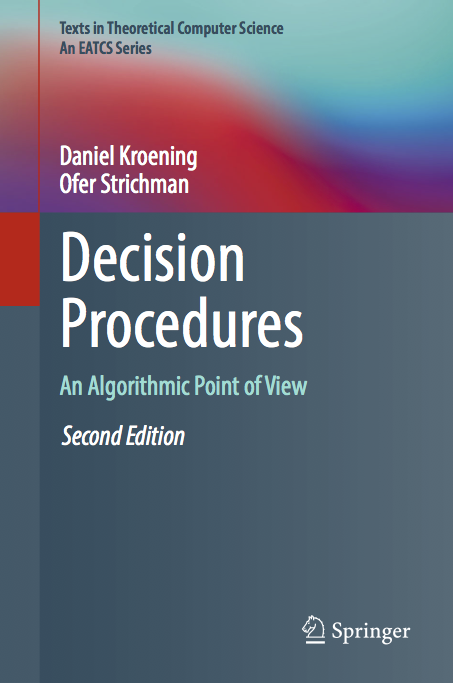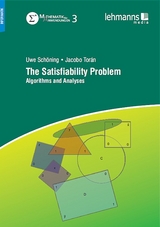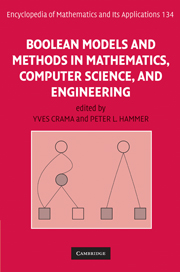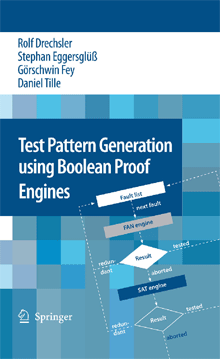SAT 2023 Call for Papers
Scope
SAT is the premier annual meeting for researchers focusing on the theory and applications of propositional satisfiability, broadly construed. That includes Boolean optimization, such as MaxSAT and Pseudo-Boolean (PB) constraints, Quantified Boolean Formulas (QBF), Satisfiability Modulo Theories (SMT), model counting, and Constraint Programming (CP) for problems with clear connections to Boolean-level reasoning. Topics of interest include (but are not limited to):
- Theoretical advances (including algorithms, proof complexity, parameterized complexity, and other complexity issues)
- Practical search algorithms
- Knowledge compilation
- Implementation-level details of SAT solving tools and SAT-based systems
- Problem encodings and reformulations
- Applications (including both novel applications domains and improvements to existing approaches)
- Case studies and reports on insightful findings based on rigorous experimentation
Out of Scope
Papers claiming to resolve a major long-standing open theoretical question in Mathematics or Computer Science (such as those for which a Millennium Prize is offered), are outside the scope of the conference because there is insufficient time in the schedule to referee such papers; instead, such papers should be submitted to an appropriate technical journal.
Paper Categories
Submissions to SAT 2023 are invited in the following three categories:
- Long papers (9 to 15 pages, excluding references)
- Short papers (up to 8 pages, excluding references)
- Tool papers (up to 8 pages, excluding references)
Long and short papers should contain original research, with sufficient detail to assess the merits and relevance of the contribution. For papers reporting experimental results, authors are strongly encouraged to make their data and implementation available with the submission. Submissions on applications and case studies are encouraged. Such papers should describe details, weaknesses and strengths of the proposed approaches in sufficient depth, but they are not expected to introduce novel solving methods. Long and short papers will be evaluated with the same quality standards, and are expected to contain a similar contribution per page ratio.The authors should choose between a long or a short paper depending on the space they need to fully describe their contribution. The classification between long and short papers impacts the duration of the presentation of the work during the conference. It is the responsibility of the authors to make sure that their paper is self-contained in the chosen limit of pages. There will be no re-classification of the submissions by the PC.
Tool papers are expected to report on the design and implementation of a tool and its novel features. Here tool is interpreted in a broad sense, including descriptions of solvers, preprocessors, etc., as well as systems that exploit SAT solvers or their extensions for use in a relevant problem domain. A demonstration is expected to accompany a tool presentation. Papers describing tools that have already been presented previously are expected to contain significant and clear enhancements to the tool.
Submission
Submissions should not be under review elsewhere nor be submitted elsewhere while under review for SAT 2023, and should not consist of previously published material. Submissions not consistent with these guidelines may be returned without review.
Papers must be formatted in the LIPIcs LaTeX style available here. Submissions must be made electronically in PDF format.
Authors may submit a supplement containing detailed proofs, examples, software, detailed experimental data, or other material related to the submission, to be consulted at the discretion of the reviewers. Supplements will be treated with the same degree of confidentiality as the paper itself. The supplement must consist of a single file in one of the following formats: zipped tarball (.tar.gz or .tgz), gzipped file (.gz), or zip archive (.zip).
One author of each accepted paper is expected to present it at the conference.
Important Dates
- Abstract Submission: March 10, 2023
- Paper Submission: March 17, 2023
- Author Response: April 26 – April 30, 2023
- Author Notification: May 15, 2023
Best Paper Awards
Long and short papers may be considered for a Best Paper Award. If the main author is a student, both in terms of work and writing, the paper may be considered for a Best Student Paper Award.
Proceedings
Accepted papers will be published as proceedings of the conference in the Leibniz International Proceedings in Informatics (LIPIcs) as a free, open, electronic archive with access to all. Authors will retain full rights over their work. The accepted papers will be published under a CC-BY license.










